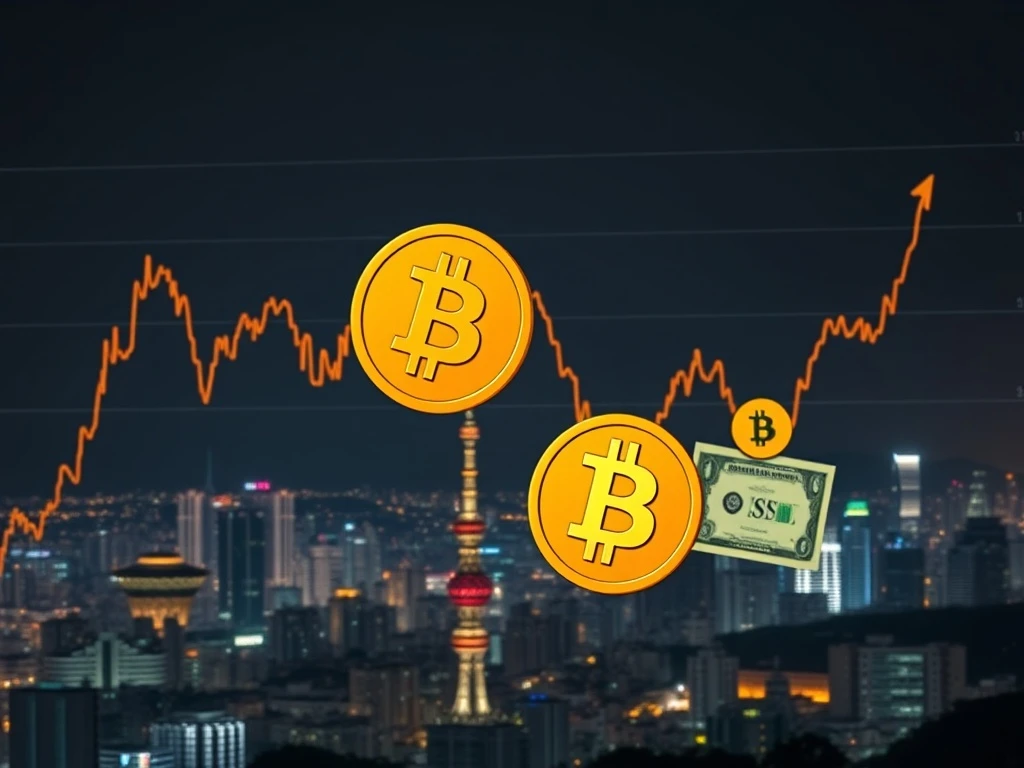South Korean Won Crashes to 1,400 Per Dollar: Bitcoin Demand Surges as U.S. Rate Gaps Widen

The South Korean Won has plummeted to 1,400 per dollar for the first time since May, signaling economic turbulence and a surge in Bitcoin demand as investors seek refuge from currency depreciation. Here’s what you need to know.
Why Is the South Korean Won Plunging?
The won’s decline is driven by three key factors:
- U.S. rate hikes: The Federal Reserve’s aggressive tightening has widened the interest rate gap with South Korea, making dollar assets more attractive.
- Trade imbalance: Rising energy import costs have worsened South Korea’s trade balance, adding pressure on the won.
- Global inflation: Persistent inflation has eroded confidence in emerging market currencies.
Kimchi Premium Returns as Crypto Demand Rises
As the won weakens, South Korean investors are flocking to Bitcoin and stablecoins, reigniting the “Kimchi Premium”—where crypto trades at a premium locally. Key implications:
- Increased trading volumes on local exchanges like Upbit and Bithumb.
- Potential regulatory scrutiny if capital outflows escalate.
- Stablecoins like USDT may see higher demand as a dollar hedge.
What’s Next for the Won and Crypto Markets?
The Bank of Korea faces tough choices:
- Raise rates to support the won but risk slowing growth.
- Intervene in forex markets by selling dollar reserves.
For crypto investors, the won’s volatility could mean:
- Higher Bitcoin adoption as a hedge.
- More pronounced arbitrage opportunities via the Kimchi Premium.
Conclusion: Navigating Currency Volatility
The won’s slump highlights the challenges of global monetary divergence. Investors should monitor Fed policies, trade balances, and crypto market trends to stay ahead.
FAQs
1. What is the Kimchi Premium?
The Kimchi Premium refers to the higher prices of cryptocurrencies in South Korea due to strong local demand and capital controls.
2. How does U.S. monetary policy affect the won?
Higher U.S. interest rates attract capital away from South Korea, weakening the won.
3. Will the Bank of Korea intervene in forex markets?
Possible, but aggressive interventions could deplete reserves and spark further volatility.
4. Is Bitcoin a good hedge against won depreciation?
Historically, Bitcoin has acted as a hedge in emerging markets, but its volatility remains a risk.








